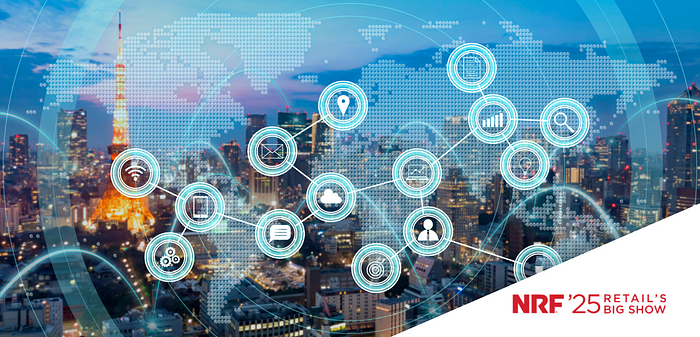How to Build a Winning Retail Technology Strategy with Expert Retail Consultants
Retail is evolving rapidly in response to shifting consumer expectations, supply chain complexities, and increasing digital competition.
Retail is evolving rapidly in response to shifting consumer expectations, supply chain complexities, and increasing digital competition. To stay competitive, businesses need more than just intuition — they need a carefully crafted retail technology strategy that integrates innovation with operational efficiency. This strategy, when guided by experienced retail consultants, can transform a company’s performance from the inside out.
In this article, we’ll dive into the importance of technology in retail, how retail consultants can elevate strategic planning, and how having a firm understanding of retail terms through a retail glossary can foster clearer communication. From defining goals to execution, building a winning retail strategy starts here.

What Is a Retail Technology Strategy?
A retail technology strategy is a detailed roadmap that outlines how a business will use digital tools and systems to meet its objectives. It covers everything from backend systems like inventory management software to customer-facing technologies such as ecommerce platforms and digital kiosks.
This type of strategy ensures that investments in software, hardware, and digital experiences align with long-term business goals. It helps retailers stay agile in a highly competitive environment, enabling them to better serve customers, reduce costs, and scale operations efficiently.
The Role of Retail Consultants in Strategy Development
Retail consultants offer more than outside opinions — they bring proven methodologies, cross-industry insights, and vendor-agnostic recommendations. Whether you’re launching new technologies or rethinking your operations, consultants help retail organizations align their strategy with both customer needs and organizational capabilities.
They typically begin with a thorough assessment of your current environment. This includes reviewing existing systems, understanding how data flows across departments, and identifying operational bottlenecks. Then they provide tailored recommendations for technology adoption, process optimization, and performance measurement.
In transformation projects, consultants can guide vendor selection, manage timelines, facilitate cross-department collaboration, and ensure that change management and training are prioritized. Their involvement often accelerates success and reduces the risk of costly missteps.

Developing a Modern Retail Technology Strategy
A strategic approach to technology implementation starts by defining your business goals. Are you looking to improve customer retention, increase transaction speed, expand to new markets, or lower operating costs? Clarity on your goals helps shape every decision that follows.
Once goals are set, assess the current technology stack. Identify systems that are outdated or lack integration capabilities. Retail consultants often lead this analysis to uncover gaps in real-time data access, inventory visibility, or customer engagement tools.
Involving stakeholders from departments like IT, marketing, and store operations ensures that the strategy addresses real needs across the business. With everyone aligned, you can begin planning phased initiatives — starting with high-impact, quick-win projects that deliver immediate value.
The final step is continuous optimization. Use data and performance metrics to track progress and adjust the roadmap as needed. Technology should evolve with your business, and your strategy should be flexible enough to adapt.

Two Essential Areas for Bullet Points
Key Technologies that Drive Retail Strategy:
- POS Systems: Fast, integrated checkout that syncs with inventory and customer data.
- CRM Platforms: Centralized customer relationship data for personalization.
- ERP Systems: Core operational functions from inventory to finance.
- Ecommerce Solutions: Unified digital storefronts integrated with physical stores.
- Analytics Tools: Real-time reporting on sales, customer behavior, and more.
- AI Applications: Tools for dynamic pricing, customer segmentation, and forecasting.
Retail Glossary — Must-Know Terms:
- Omnichannel: Unified customer experience across in-store and online.
- Clienteling: Personalized service using data on past customer behavior.
- RFID: Tech for tracking inventory via radio-frequency tags.
- Planogram: Visual layout for how merchandise is arranged on shelves.
- Endcap: Special product display placed at the end of store aisles.
Conclusion
Crafting a strong retail technology strategy isn’t a one-size-fits-all task. It requires understanding your unique challenges and aspirations, then using technology as a tool to overcome and fulfill them. Partnering with retail consultants adds significant value — they ensure your strategy is grounded in both experience and innovation.
Understanding key concepts from the retail glossary**** empowers teams to communicate clearly, make informed decisions, and collaborate effectively. In the end, your retail strategy must evolve alongside your customers and the broader market. With the right foundation in place, you’ll be positioned for long-term success.
FAQs
Q1: What do retail consultants do exactly? Retail consultants help businesses define their strategy, select the right technologies, and manage transformation initiatives. They bring deep retail knowledge, tools for benchmarking performance, and a focus on return on investment.
Q2: How does a retail technology strategy affect customer experience? It enhances the customer experience by offering faster checkouts, personalized promotions, seamless online/offline interactions, and real-time inventory availability — factors that today’s consumers expect.
Q3: Are these strategies only for large retailers? Not at all. Small and mid-sized retailers benefit significantly from having a well-thought-out strategy. Retail consultants can recommend right-sized solutions that grow with the business.
Q4: How often should we update our retail technology strategy? Ideally, your retail technology strategy should be reviewed and updated at least once a year, or whenever there’s a major change in customer behavior, technology trends, or business structure.